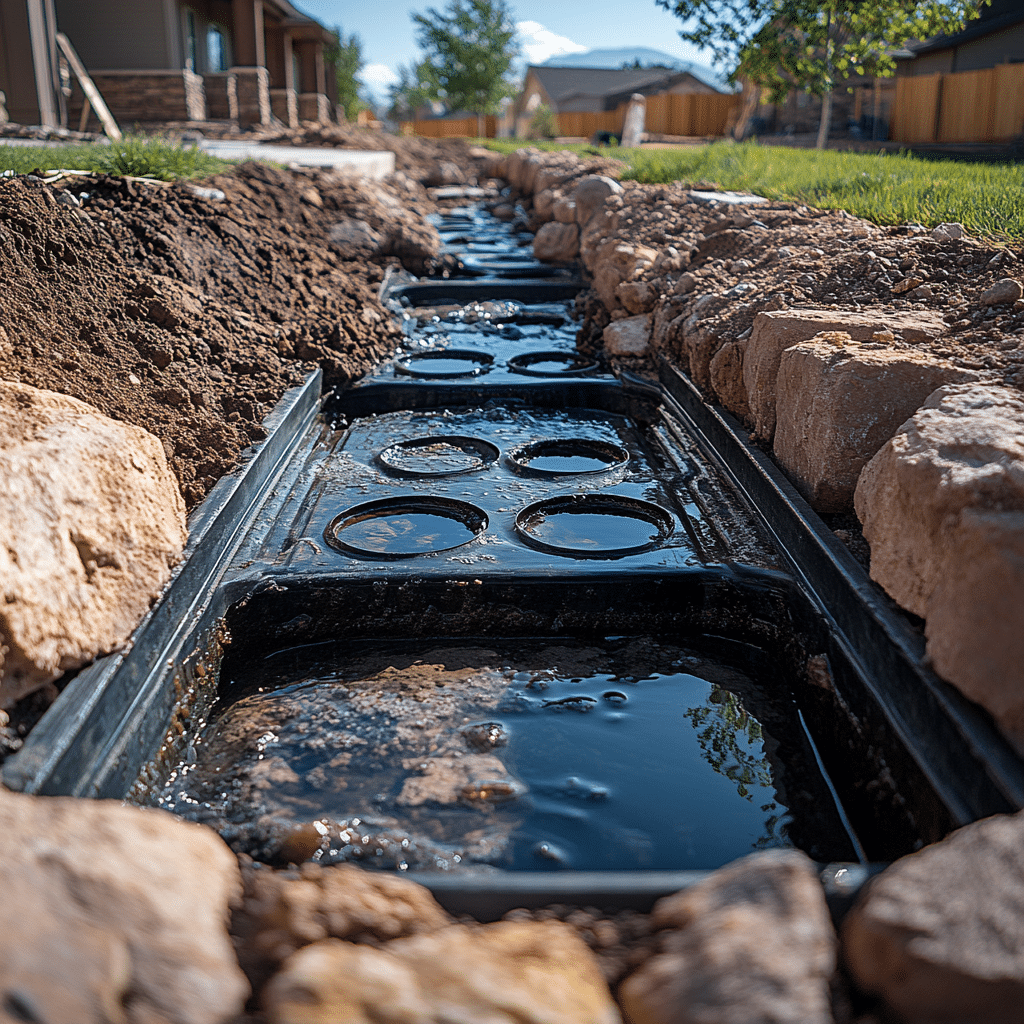Managing waste in your home ain’t just about flushing the toilet and forgetting it exists. If you live in a rural or suburban area without a centralized sewer system, you need a solid understanding of how a septic tank system works. It’s vital for home waste management, and knowing the ins and outs can save you from costly surprises down the road. In this guide, we’re diving deep into what you need to know about septic tank systems, their costs, types, installation, maintenance, and even their environmental impact. Buckle up!

Understanding the Septic Tank System: A Key Component of Home Waste Management
So, what exactly is a septic tank system? At its core, it’s a self-contained underground wastewater treatment system. These systems treat the wastewater generated by a home and release it back into the environment. The septic tank collects waste and allows solids to settle to the bottom while liquid waste flows out to the drain field.
Good news: with proper maintenance, your septic tank can last for decades. But ignoring it can lead to all sorts of headaches—think sewage backups and soil contamination. That’s why understanding the components of a septic tank system is so crucial. It’s not just a hole in the ground; it’s a carefully engineered system that plays a vital role in protecting your home and the environment.
Now, what’s the cost of these systems? Generally, you’re looking at about $3,000 to $7,000 for installation, based on the type of tank, local soil conditions, and required permits. Being informed about these aspects can help you avoid financial pitfalls, just like knowing how to manage your budget effectively can lead to saving more money in your mortgage plans.

Top 5 Types of Septic Tanks: Which Is Right for You?
When it comes to septic tanks, you’ve got options. Let’s break down the five most popular types to help you make an informed decision.
Deciding on the type of septic tank system that’s right for you will depend on your specific needs, budget, and the soil conditions of your property. It’s always best to consult with a professional who can guide you based on the unique characteristics of your location.
Cost Considerations for Installing a Septic Tank System
Installing a septic tank system involves more than just the tank itself. Let’s break down the key costs you might face.
Understanding these cost implications sets you up for success—much like being a savvy first-time homebuyer means knowing all the expenses that come with owning a home. Knowledge is power, after all!
Essential Components of a Septic Tank System
The inner workings of a septic tank system can seem a bit confusing at first glance. Here are the essential components you need to be aware of to keep things running smoothly:
By understanding these components, you’ll be better equipped to care for your septic tank system. Regular check-ups can save you from nasty surprises. Just think about that—it’s similar to how you’d monitor your finances to maintain a healthy credit score.
Maintenance Tips for Your Septic Tank System
So, how do you keep your septic tank system in top shape? Here are some essential tips to follow:
By following these maintenance tips, you’re not just prolonging the life of your septic tank system but also protecting your investment—just like consistently monitoring your budget or reviewing your bank Statements can keep your finances secure.
The Environmental Impact of Septic Tank Systems
When installed and maintained correctly, septic systems can be a fantastic solution for waste disposal. They treat wastewater on-site, which minimizes the need for invasive sewer lines that can tear up natural landscapes. Additionally, a well-functioning system allows treated water to return to the ecosystem, promoting groundwater replenishment.
However, failure to maintain your system can lead to significant environmental hazards, like groundwater contamination. Being aware of how your system interacts with local ecosystems matters—responsible waste management is a community effort.
Also, keep an eye on innovations in septic technology, as systems that are more efficient and eco-friendly are on the rise. As a homeowner, staying informed about the environmental impact of your septic tank system helps ensure you’re being a responsible steward of your land and resources.
The Future of Septic Tank Systems
Now let’s talk about where we’re headed. As the population grows and environmental concerns become a pressing issue, innovation in septic systems is heating up. More companies are developing advanced treatment technologies designed to improve efficiency and reduce homeowners’ environmental footprints. For example, integrating biological and mechanical treatment processes may offer solutions that are less disruptive than traditional methods.
Smart septic systems are also on the rise. These tech-savvy solutions monitor tank levels and detect issues remotely, offering homeowners convenience and peace of mind. With advancements like these, managing your septic tank system could soon be as easy as checking an app on your phone.
By understanding how these systems are evolving, you’ll be better equipped to plan for your future. Just like being savvy about the fed interest rate hike when securing your mortgage, staying updated on septic system technology can help you maintain your property efficiently and responsibly.
In summary, a septic tank system is more than just a requirement for waste disposal; it’s a vital aspect of home management that impacts your finances and the environment. Now that you’re armed with knowledge, you’re in a better position to navigate home waste management like a pro. Stay informed, keep up with maintenance, and enjoy the peace of mind that comes with knowing your waste is handled properly.
Septic Tank System: Fun Trivia and Interesting Facts
What is a Septic Tank System?
Septic tank systems are a fascinating feature of modern home waste management. Did you know that these systems can last over 30 years if properly maintained? That’s longer than some popular bands have been in the limelight, like Jodeci, who’ve been keeping their fans entertained with music for decades! Proper upkeep includes getting a trusted real estate agent to recommend the right service professionals for inspections and pumping, much like how First-time Homebuyers might need professional assistance in navigating the housing market.
Why Do Septic Tanks Need Maintenance?
One quirky aspect of septic tanks is that the bacteria inside them break down waste materials. This nifty natural process reminds us of how markets can thrive on good resources, much like the vibrant food market Baltimore is known for—each ingredient plays a role in a delicious meal, just as bacteria play a vital part in waste breakdown. Not maintaining your system can lead to costly repairs, so be sure you keep an eye on it to avoid any mishaps.
Fun Facts About Septic Tank Systems
Here’s a fun tidbit: septic systems can often be installed in areas where traditional sewage systems can’t reach, providing essential waste management for rural communities. It’s pretty cool how these systems support sustainability and environmental health! Just like knowing How To raise credit score can empower homeowners financially, understanding your septic tank’s workings can save you from unexpected headaches down the road. So next time you’re thinking about that distance between your home and the nearest treatment plant, remember that a septic tank system could be just the solution you need!




